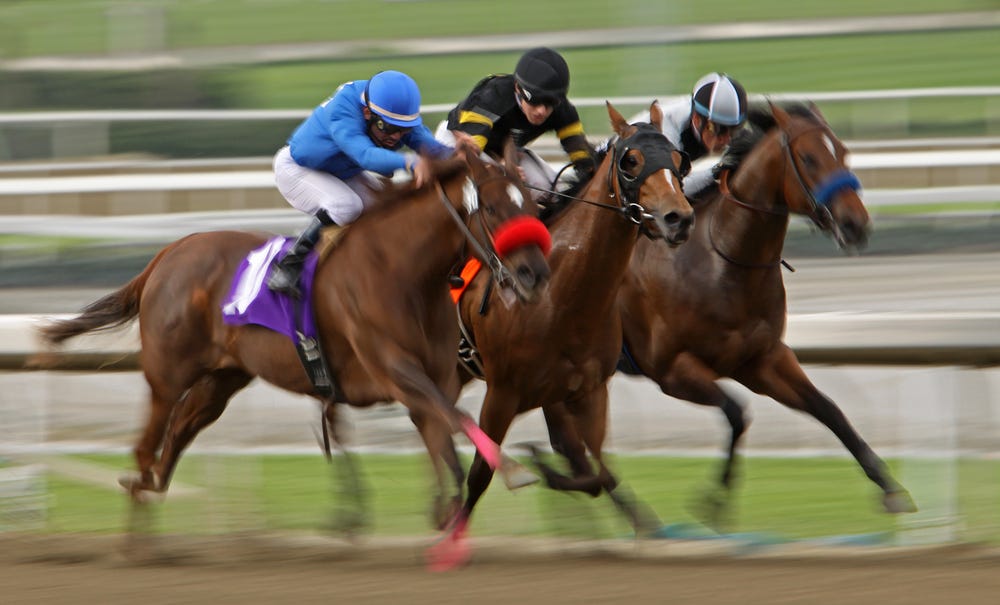Good morning and welcome to Due Diligence, where the aim is to delve deeper into topics of importance to the sector.
For our second edition, we take a look at the attempt to pivot into iCasino in the US and ask whether there is actually any space to pivot into. Plus, we review a selection of recent analyst takes.
The iCasino pivot
In among the various US sports-betting market departures in recent months, a number of operators have indicated a more nuanced approach involving a pivot to iCasino. Yet, while this solves the problem of chasing the impossible OSB dream, it opens up further questions around short-term – and potentially long-term – viability.
Off ramp: Already this NFL season, FuboTV and MaximBet have called it quits in the US sports-betting space, both citing “macroeconomic conditions”. But a more subtle shift has also taken place, with two prominent European names indicating a pivot to iCasino.
During its investor day in late November, 888 said its SI Sportsbook would in future focus on states with iCasino.
Similarly, during its investor day in late October, Kindred said it would exit Iowa to focus on multi-vertical states.
In its investor presentation, 888 cited EKG, saying iCasino revenues were 3x bigger than sports on a per state basis.
Loyalty test: It added that iCasino players had a higher value and were more loyal.
Kindred, correspondingly, said a multi-product state focus meant it could “optimize” its state footprint. It has set a target of breakeven by 2026.
It is hard to argue with the logic. The OSB market in the US is already somewhat sewn up with ~85% controlled by the top four.
888 and Kindred are effectively bowing to the inevitable and admitting that in OSB, as EKG said about 888, they are sub-scale.
Target practice: The logic of iCasino’s attractiveness is backed up by the data from the iCasino states. According to Deutsche Bank, the estimate for 2022 total iCasino GGR is up 31.1% on 2021, at $4.89bn.
Source: Deutsche Bank
DB forecasts 2023 iCasino GGR to rise to $5.28bn in 2023, with no new states added. Then, with Indiana and Illinois as potential add-ons in 2024, its estimate leaps to $7.14bn.
Crowded house
You’re not alone: Yet, this is already a well-trodden path, with all of the major OSB players also intimating their focus is turning towards less-capital-intensive iCasino operations. All of the big names have made mention of iCasino being a priority.
Amy Howe, CEO at FanDuel, said it would “keep making investments” in iCasino; Caesars said it was a “critical component” of its online offer; and MGM has boasted of its iCasino dominance.
Bally’s, Wynn and Rush Street Interactive also spoke during their respective Q3 calls about prioritizing iCasino.
Craig Billings, CEO at Wynn Resorts, said iCasino was where Wynn believed its brand had “real currency” and that the company wasn't willing to “burn billions of dollars” chasing sports betting.
Bally’s CEO Lee Fenton said on the company’s Q3 call that iGaming states were the ”priority” for its online operations, including Ontario.
During Rush Street Interactive’s Q3 call, CEO Richard Schwartz said that a “simple fact” about the business was that online casino was “significantly larger and more profitable” than sports betting in markets where RSI operates both.
He added that profitability comes sooner when “casino is part of the equation”, noting that the company was “leaning into” casino marketing spend.
** SPONSOR’S MESSAGE** GiG is a leading gaming platform and sportsbook provider for online and land-based operators with digital aspirations. We deliver a full end-to-end solution through our award-winning iGaming and sportsbook solutions. Built for regulated markets and a top-class customer experience, GiG is pioneering the multi-platform era. If you are looking to expand your operations into new, profitable markets, our strategy is the solution.
Find out more at sales@gig.com.
No easy wins
An operator saying it will pivot is, of course, the easy part. As Gideon Bierer, managing partner at Partis, pointed out, problems start with what targets you are left with. “The toughest thing about pivoting to iGaming is that Michigan – almost one-third of the current iGaming market – is very hard to get into with only 15 skins, while Connecticut is impossible with only two,” he said.
With Delaware controlled by the racinos, it leaves New Jersey, Pennsylvania and West Virginia as the only open markets – already very concentrated states.
In Pennsylvania, RSI is the leader of a top four along with DraftKings, FanDuel and BetMGM, which control nearly 80%, with the remainder split between eight brands.
The situation is similar in New Jersey. For the YTD to November, Wells Fargo estimated that MGM (30%), DraftKings/Golden Nugget (22%), Betfair (17%) and Caesars (11%) represent 80% of the total market, with the remainder split between 14 brands.
Grab a slice
TAM-trum: Deutsche Bank noted the medium-term estimate for online casino TAM was “not without risk”; the team suggested the estimates relied upon the extraction of promo spend having no negative effect on GGR and also that the existing 5-year CAGR run rate of 3% continued. Neither is a given and nor is the addition of new iCasino states.
Notably, DB also made the point in their recent sector review for 2023 that “this year we’re telling you” iCasino cannibalizes brick & mortar.
Against a regional sub-set of seven states without iCasino where GGR in August, September and October rose between 5%-17%, DB note New Jersey, Pennsylvania and Michigan between them saw declines of between 11% and -10% over the same period.
The underperformance has been long-lasting; DB estimates the three states have suffered ~1,700 bps of worse relative GGR for 18 months.
“It continues to baffle us that debate remains around the topic of brick & mortar cannibalization from iCasino, given the significance and longevity of these trends,” they add.
Castles made of sand: Paul Leyland at Regulus Partners noted another nuance around the arguments in favor of more liberalization, suggesting any new state will also be building iCasino revenues from other sources of consumer discretionary spend.
He pointed out that AGA talks about displacing $14bn of offshore iCasino revenue, hence liberalization of online is a largely free lunch for the states.
But with an accurate black market figure being hard to pin down, he noted that other sources of gambling-related consumer discretionary spend are a more likely source of iCasino revenue – and that includes land-based casino, lottery and scratchcards.
Is this really a pivot?
Treading water: One consultancy source suggested that what 888 was doing by announcing its iCasino pivot was “putting on a pretty dress” but what it is actually admitting is that SI Sportsbook doesn’t have any prospect of making money.
Leyland said something similar about both 888 and Kindred. “It’s not actually a pivot,” he noted. “All they have pivoted is their presentation.”
“But it is the right thing to do,” he added. “If you decide you are investing in sportsbooks until iCasino is allowed, you will simply lose a lot of money.”
“But if you are going to mark time, and wait, that is a different story.”
“What they are really saying is they are not going to spend a load of cash on a vertical where it is nearly impossible for them to scale profitably” he added. “It is bowing to the inevitable but builds in sustainability.”
Sunken dreams: It would be a bigger deal, Leyland added, if one of the larger US competitors did the same thing and effectively called time on the scale of their sports-betting ambitions. “If someone like Caesars was to genuinely pivot, it would mean giving up on the considerable sunk costs,” he said.
Further reading: In October’s Deal Talk, E+M suggested this would be the last NFL season for a number of tier 2 and 3 brands.
Yesterday on E+M: FSB technology “de-prioritizes” the US, blaming prohibitive costs.
For a dollar and a dream: The claims of lottery tax largesse don’t stand up to scrutiny.
Analyst takes
Inspired Entertainment: Roth Capital suggested that recent contract wins with Paddy Power and Betfred show how its UK high-street bookmaking footprint is “remarkably resilient”.
Las Vegas and Macau: Deutsche Bank suggested in its 2023 sector preview note that next year could be the time that Macau gaming operators “get off the mat”, while in Las Vegas it predicted YoY declines.
Online: EKG suggested the US online market is now a three-horse race, with the number of operators “competing in earnest” now depleted following market exits. Meanwhile, Morgan Stanley rebooted on the sector and suggested the turning point of profitability is “here”.
DraftKings: After meeting with management, the team at JMP said the company is increasingly confident around the “compounding nature” of the client base.
Macau: The granting of the new 10-year concessions is undoubtedly good news for the Macau market, but the uncertainties over the Covid advance in China mitigates the optimism.
Calendar
Dec 23: Last E+M newsletter of the year
Jan 2: E+M is back
Jan 3: The startup month #6
Contact
Scott Longley scott@clearconcisemedia.com
Jake Pollard jake@openmediaservices.com










